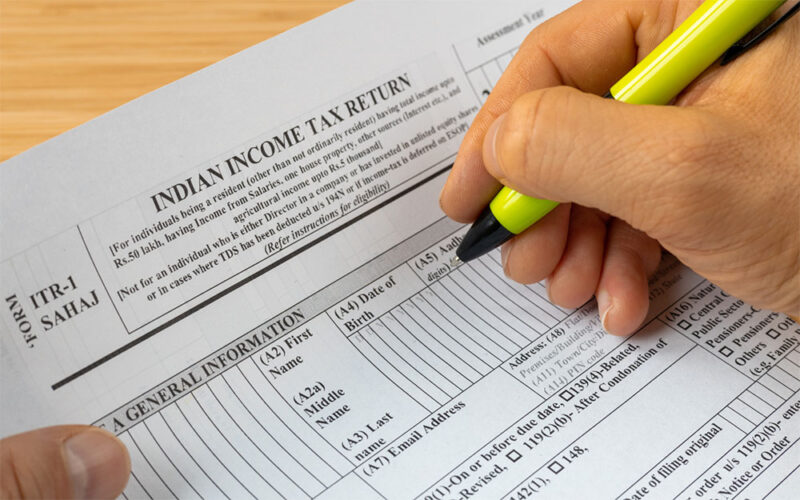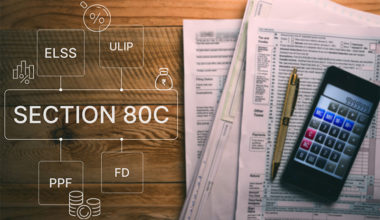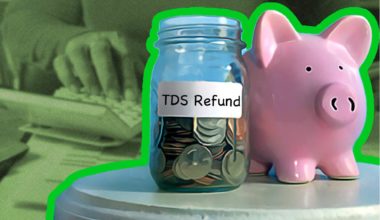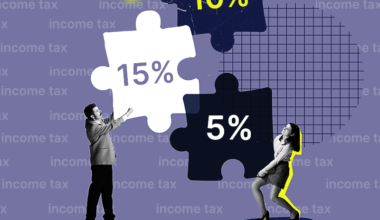Section 139 (4) of the Income Tax Act deals with filing belated returns if one doesn’t file their tax claims before the stipulated date. The claim states that if an entity misses out on the due date mentioned under Section 139(1), then:
- The entity is allowed to file tax returns within one year from the end of the relevant assessment year or before the conclusion of the assessment (whichever happens earlier).
- The entity can also re-apply if the original tax claim filed under Section 139(1) or Section 142(1)(i) contains any ‘wrong or invalid statement’ or ‘omission.’
A late fee is levied if the taxpayer fails to pay yet again. However, the penalty for late filing of ITR can be escaped if the tax return isn’t mandated on the taxpayer’s type and category.
Subsections in Section 139 (4) of the Income Tax Act
This provision has various divisions and subsections to clarify exceptions and leniency for the ITR late fee for different individuals or institutions.
- Section 139 (4a): Return of Income of a Charity or Religious Institution
Taxpayers who receive their income through any property intended for charitable or religious purposes must file for ITR under Section 139 (4a), provided that the accumulated income exceeds the exemption limit (outlined in Sections 11 and 12 of ITA).
- Section 139 (4b): Political Party to Furnish the Return on Income
This subsection mandates income tax filing for political parties or people with political alliances. The total annual income must surpass the basic exemption limit (without adding on the benefits proposed in Section 13A).
- Section 139 (4c) and Section 139 (4d): Income Tax Return of Entities Claiming Exemption
These subsections are set in place to deal with the institutions claiming tax benefits under the benefits listed under Section 10. Section 139 (4c) mandates the following institutions to file for tax claims (if their accumulated income surpasses the specified limit).
- Associations involved in scientific research
- Organisations or groups listed under Section 10 (23A) and Section 10 (23B)
- News sources
- Institutes offering healthcare and education
The institutions covered under Section 139 (4c) can propose to apply for tax exemptions under Section 10 according to the following provisions-
- Clause 21
- Clause 22B
- Clause 23A
- Clause 23C
- Clause 23D
- Clause 23DA
- Clause 23FB
- Clause 24
- Clause 46
- Clause 47
Similarly, Section 139 (4d) applies to the institutes listed under the following ITA sections-
- Section 35(1)(ii)
- Section 35(1)(iii)
This subsection concerns the tax filing of colleges, universities and other educational institutions that aren’t required to file returns under any other provision.
- Section 139 (4f)
Under this subsection, the submission of ITR for the investment funds mentioned in Section 115UB is compulsory. This provision frees entities from other loss or damage-related provisions mentioned under Section 139(1).
- Section 139(9) – Defective Returns
This subsection allows fixing any defects in the documentation of your return filing application. The taxpayer is informed about any defects in their forms with a 15-day rectification period to fix their applications.
Eligibility Criteria for Application of File Returns under 139(4)
Starting from the financial year 2022-23, the following situations mandate the submission of ITR claims-
- Annual income exceeding INR 2,50,000
- Having over INR 1 crore deposited in your current account
Limitations of Filing under Section 139(4)
Apart from the late ITR filing penalty, there are certain downsides to filing tax claims under section 139(4)-
- The taxpayer may miss out on the interest benefits of the eligible refunds under Section 244A.
- One does not get the option to choose their preferred tax structure.
- The deductions under the subparts of Section 10 are prohibited for late payers.
- You may have to face specific limitations such as ‘no losses are allowed to carry forward’ under ‘capital gain’ and ‘business and profession’.
ITR 7 Form for Section 139
The ITR 7 form is a necessary prerequisite for individuals and companies under Section 139 who want to file for income tax returns. The form is divided into two parts and twenty-three schedules. You must pay diligent attention to the details of these forms while filling them out. No other document
Conclusion
As a responsible citizen, you must be aware of the deadlines for filing income tax returns. However, if you miss the due dates, you still have the late IT return filing policies under Section 139 (4) of the Income Tax Act. Staying informed of the laws governing late tax filing and related processes is essential to avoid penalty fees. Furthermore, for your personal convenience, it is equally important to be mindful of the eligibility criteria, limitations and forms required to complete the filing process.
What are the due dates under section 139?
Can I claim a tax refund for the belated return?
Is there a penalty for late filing of income tax under Section 139(4)?
When can I file for my belated return under 139(4) of the income tax act?
Related News
Received Income Tax Notice? Here’s Why










